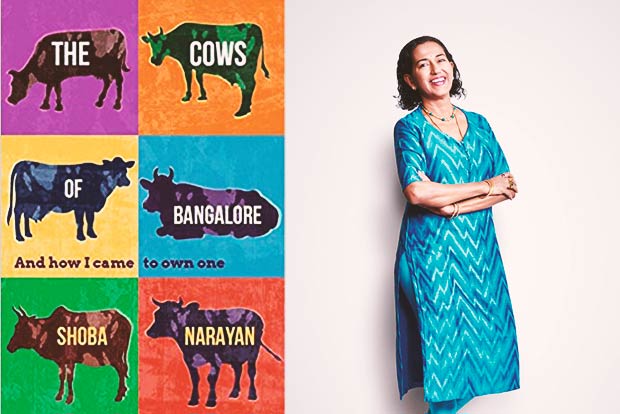Begin typing your search...
A journey through the bovine world
Shoba Narayan, the author of The Cows of Bangalore, opens up about her book and why every Indian should read it

Chennai
When the author Shobha moved back to Bengaluru from Manhattan with her family a couple of years ago, she befriended the woman she bought fresh milk every day. Over time, the two —from vastly different backgrounds — bond over not only cows but also food, family and life.
“Ten years ago, the woman who sells milk from live cows approached me for a loan. She wanted Rs. 75,000 to buy a cow. Since it was such a large amount, I told her that I wanted to accompany her to buy this cow. And thus our adventure began. The story lends itself to humour because the whole project ends up being hilarious. So, this book is a light-hearted humorous tale about two women and a cow,” says author Shoba Narayan about her book.
Talking about the inspiration for writing the book, she says, “The cow was the inspiration. The trigger was my milk woman asking me for a loan. Observing the cow, being drawn to these animals, and then encountering the milk lady provided fodder for the tale. I grew up with cows roaming the streets in India. That said, I think a particular set of circumstances had to come together, almost as if the universe was conspiring to bring them to me, in order for this book to happen.” The cow in India has now become so political, says the author explaining the challenges while writing The Cows Of Bangalore. “The hardest part of the book was to chase the various political stories that are now epitomised by the cow, and finally decide to delete all of them and make the book apolitical and therefore, hopefully, timeless,” she says.
Shoba talks about the type of research that has made her the ‘cow lady’. “This book took me 10 years to write, mostly because, the story unfolded at its own pace. Once I started writing it, I began doing research on the cow and this changed the book. I began to realise how the cow is so important in Hinduism. I also studied the domestication of animals which is a fascinating exercise. I learned about native Indian cows that belong to the Bos indicus species. The milk that these cows give it supposedly healthier and I’m very pleased to see that many Indians have started buying desi cow milk,” Shoba explains.
The author states that every Indian should read this book to understand why the cow is so important in Hinduism, and how all the desi breeds of cows are going extinct and why one should patronise local breeds. “But at the end of the day, you should read this book for a humorous take on an animal that is so prominent in our Indian ecosystem,” she sums up.
Visit news.dtnext.in to explore our interactive epaper!
Download the DT Next app for more exciting features!
Click here for iOS
Click here for Android
Next Story



